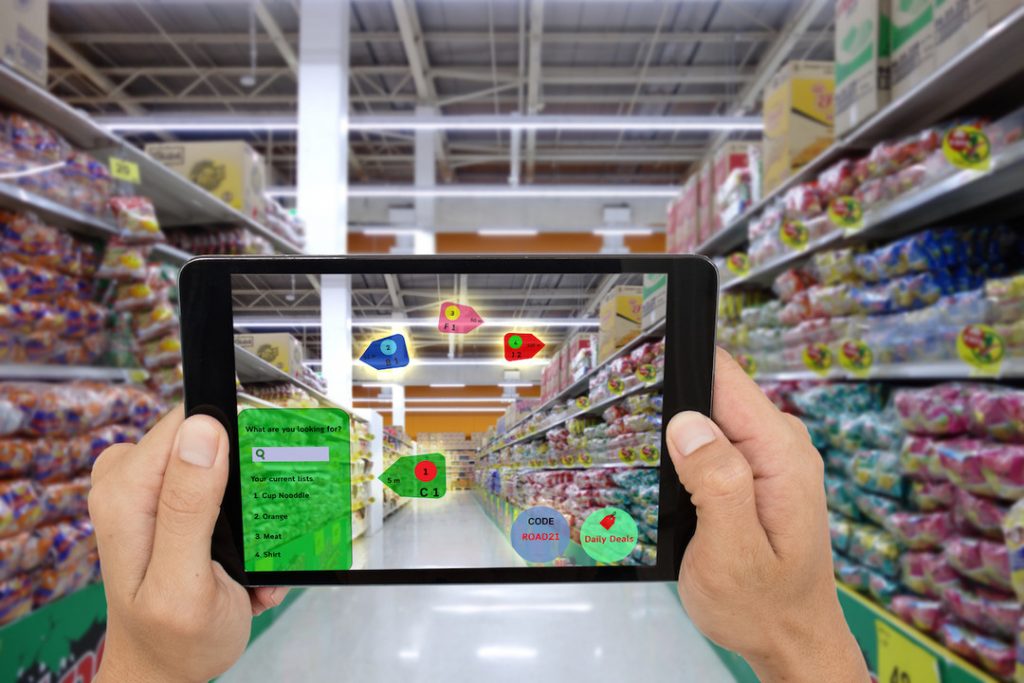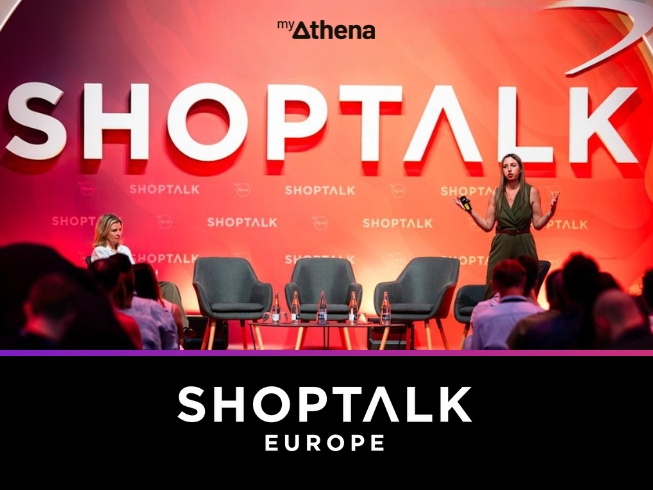Retail isn’t evolving, it’s being reinvented.
From Barcelona to New York, across Shoptalk Europe, CommerceNext New York and The Lead Summit 2025 New York, one thing became clear: the brands that will win aren’t just following trends, they’re reshaping them. In a climate where AI is table stakes, consumer values are non-negotiable, and experiences beat transactions. Here are 10 defining retail trends from Shoptalk, The Lead and CommerceNext that will shape the next era of commerce.

Artificial intelligence has moved from pilot projects to platform strategy. At Shoptalk, American Eagle detailed how it’s using AI to scale influencer collaborations from 700 to thousands, mapping not just style alignment but also values. Danone credited AI with helping drive operational efficiency across 16 straight quarters of growth.
From Amazon’s Kelsey Ayres at CommerceNext discussing adaptive commerce networks to Rue Gilt Groupe’s Josh Platt accelerating productivity with Lily AI, the message was clear: AI is moving from hype to hyper-efficiency. 1-800 Contacts shared how AI decisioning reshaped their entire marketing strategy, proving that automation can now match human nuance. “AI is no longer about replacing human decision-making, it’s about scaling personalization with surgical precision.” – Stephanie Hileman, 1-800 Contacts.
At The Lead, Stitch Fix’s Tony Bacos and Tapestry’s Trang To emphasized the next big shift: preparing teams to work with AI, not around it. It’s not about replacing humans, but empowering them to make smarter, faster, more personalized decisions.
At CommerceNext, Coach’s Pooja Chandiramani explored how incrementality, AI, and creative strategy together redefine performance. As GenAI reshapes both paid and organic search, success will depend on blending storytelling with smart data models, what Avinash Kaushik dubbed the “Triple Threat Strategy.”
As we recently discussed in the biggest AI tech innovations impacting 2025, there are several retail tech startups that operate in this area that are worthy of a mention. These include Velon AI, which delivers AI Employees built to execute so that procurement and supply chain teams scale faster, spend smarter, and stay fully in control. And there is also Tasq.ai which we covered in our startup spotlight series, which transforms business operations by enhancing AI model accuracy from ~80% to 99%. It revolutionizes retail and e-commerce by enriching product catalogs, ensuring that descriptions and specifications drive customer engagement and sales.
In a parallel observation, Or Schreiber, co founder and Co CEO at Dondy, noticed at Shoptalk Barcelona that every tech company emphasized “AI” in their booth messaging. But when speaking directly with brands, many said they hadn’t seen AI truly impacting their day-to-day work yet. “This gap shows we, as tech providers, need to work harder, not just to develop AI features, but to help clients actually adopt them.”

Retail media isn’t just hot, it’s heating up performance, as we had previously discussed in what makes it a $293 billion opportunity. Best Buy’s Lisa Valentino shared at Shoptalk that retail media ads are now driving 15–30% stronger results compared to traditional digital formats. At The Lead, brands like PROVEN Skincare and Nift talked about how commerce media is reshaping customer acquisition and loyalty, especially when paired with video and influencer content. Jason Zollan from Constructor led a conversation about balancing retail media monetization with customer experience at CommerceNext too. “Retail media needs to feel like utility, not interruption.” — Jason Zollan, Constructor.
buywith’s panel on shoppable video at Shoptalk underscored this convergence: turning entertainment into engagement, and content into conversion. Video is no longer just part of the funnel, it pretty much is the funnel. Platforms like buywith with the new platform myAthena showcase how video commerce can be applied to retail media across placements and platforms, making video a core focus.

From MAC Cosmetics’ cultural fluency to Alexis Bittar’s high-impact content playbook, The Lead showed how brand narrative isn’t fluff, it’s function. Consumers are tuning out brands that only talk product and tuning into those that show personality, values, and a point of view. At Shoptalk, Lawless Beauty proved that UGC outperforms polished campaigns. In both forums, the message was the same: If you’re not building trust through storytelling, you’re building irrelevance.
Retailers that survived 2020 by reacting fast are now thriving in 2025 by planning smarter. Behind all the brand glitz is a quiet revolution in fulfillment and inventory. Amazon Buy with Prime and Shipfusion highlighted multi-node fulfillment and last-mile innovation at CommerceNext, while Bask & Lather’s CEO Shaina Rainford credited smart fulfillment as key to their DTC breakout.
Danone’s approach to resilience, diversified supply chains, real-time data, and employee upskilling, was highlighted at Shoptalk as a benchmark. The Lead echoed this theme where leaders from Ralph Lauren and Randa Apparel stressed the need for contingency planning, operational flexibility, and a culture that sees change as a norm, not a disruption. Overall, this speaks to having a supply chain that is flexible, adaptable and simple enough to adapt to changing economic climate. From predictive shipping to localized warehousing, logistics isn’t a back-end function anymore, it’s a customer promise.
In our recent roundup of supply chain startups that are delivering results to retailers along these lines are ReturnGO which is an end-to-end, sustainable returns management platform. It enables companies to offer seamless return and exchange options while reducing operational costs and waste. As well as Onebeat which applies AI and machine learning to supply chain management, using data-driven insights to optimize in-season inventory allocation. Its predictive capabilities help retailers prevent overstock and stockouts, increasing in-season sell-through rates by 10%-20%.

LEGO’s Gaudí-inspired Barcelona flagship and Harrods’ AI-powered personalization both proved that the store isn’t dead, it’s just being reimagined. Shoppers want more than products; they want presence, participation, and story. At The Lead, Veronica Beard and Nuna discussed how partnerships and local activations are turning retail into entertainment. The formula is clear: build a destination, not a display. Consumers don’t just want to shop, they want to belong, something that Lego, for example, does quite well in blending the online and offline worlds to drive conversation and conversion, outlined in our coverage in Re:Tech Disrupt. This echoes our previous discussions on the physical-digital nexus that retailers are now facing, too.
David Janecek of FragranceNet and Nakul Narayan of Attentive showcased how RCS (Rich Communication Services) is transforming mobile messaging. With AI-enabled, 1:1 messaging, brands can drive higher engagement, especially on mobile-first journeys. As such, personalized commerce is becoming less about channels and more about conversations.
Sustainability isn’t a bonus anymore. At Shoptalk, Danone’s Ayla Ziz said it best: “Without sustainability, we have no future. Without performance, we have no impact.” Brands like Sandro and John Lewis are weaving ethics and wellness into their core propositions. At The Lead, Macy’s and Archive spotlighted the rise of circular fashion. Whether it’s resale, rental, or radical transparency, the path to profit now runs through purpose.
Retail tech startups active in this space include AKOlogic, which responds to global concerns over food safety and sustainability and has built an industry-first cloud platform with real time visibility in a simple universal format that unifies the entire crop-to-consumer value chain. It’s advanced live tracking and intelligence systems enable the platform to quickly analyze data, push critical notifications and send multiple reports in one click. And there is also Wasteless, an AI-powered profit optimization solution for supermarkets that aims to generates revenue for supermarket chains by optimizing their markdowns and preventing their food waste and its AI-powered markdown optimization engines enable retailers to dynamically price items based on their expiration dates.

Consumers aren’t just looking for the lowest price, they’re calculating total value. That means quality, ethics, experience, and long-term trust. At The Lead, Macy’s Private Brands SVP Emily Erusha-Hilleque and Archive’s Emily Gittins explored how brands can stay competitive without racing to the bottom. In Europe, WGSN’s Carla Buzasi urged retailers to “design destinations, not stores” and to replace conversion-first strategies with connection-first ones. It’s not about discounting more, it’s about mattering more.
Community is no longer a side channel, it’s the foundation of brand longevity. From Mid-Day Squares’ storytelling approach to Loop Earplugs’ grassroots momentum, The Lead’s DTC Symposium made it clear: connection drives conversion, echoing what we had previously discussed in one of our DTC tracks too.
At Shoptalk, Reddit summed it up with a sharp line: “You can’t have artificial intelligence without actual human intelligence.” Behind every algorithm, there needs to be a pulse. The future of brand building lies in networks, not just reach, and in listening as much as broadcasting. American Eagle’s Ashley Schapiro explained why the brand’s sports partnerships, like those with Coco Gauff and Livvy Dunne, are key to staying culturally relevant, as they build on community hype. Aligning with athletes isn’t just about reach, it’s about showing up in high-emotion, identity-driven spaces. It’s an expansion of what we heard at Shoptalk about “lifestyle marketing” and meeting shoppers in their emotional lanes.
Notable retail tech startups operating in this space include Decommerce which is a community software for brands to build a community in their websites or landing pages. It supports onboarding your community under an owned domain without third party interference, gamifies communication, integrates with main ecommerce platforms, and rewards community interactions all within the website. It is essentially built for creators, communities and brands for the seamless exchange of creation, digital assets and physical products.
Histoircally, performance marketing and paid social or paid search always banked on funnels. CommerceNext featured COS and PebblePost breaking down why incrementality is the new gold standard for paid marketing. With GenAI flooding search results and audiences scattered across more platforms, performance marketers are shifting from short-term ROAS to long-term influence, reflecting how consumers are consuming media, retail, and making purchases.. “If you can’t prove incrementality, you’re not growing. You’re just spending,” said Jacob Ross, CEO, PebblePost.
CommerceNext offered one of the most grounded omnichannel panels yet. IKEA’s Antonella Pucarelli revealed how the company’s human-centered design and GenAI experiments are streamlining cross-platform shopping, while Boot Barn’s Jon Kosoff emphasized AI’s role in crafting connected commerce. Similarly, at The Lead, brands like Victoria’s Secret shared how immersive mobile strategies are unlocking in-store growth. The consensus? Omnichannel is no longer a tech stack, it’s a mindset.
Across two continents and dozens of panels, the future of retail came into focus: it’s faster, flatter, more personal, and more principled. Whether you’re investing in AI, leaning into storytelling, or building through community, one thing is certain, reinvention is not optional. It’s the only way forward.